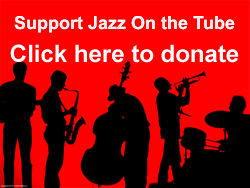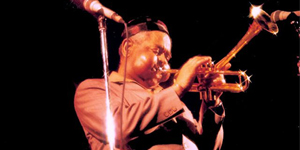Notes from the book “Manchester, England: The story of a pop cult city” for anyone who wants to research historical connections between Manchester and New Orleans.
Author: Dave Haslam, Published in 1999
1. “The inhabitants are of a good sort, being pretty much of the old English temper, hardy and sincere in their affections and expressions, given to hospitality, very kind and civil to their friends, but very stiff and resolute against their enemies, well disposed to religion and very zealous in whatever they engage.” – William Stuckeley on Manchester, 1724. P. VII
2. Manchester is a hybrid town, born all in a rush 150 years ago, when those arriving looking for work in the fast growing factories, workshops, warehouses and foundries. P. XI
3. Famed and feared 150 years ago as it became the first industrial city in the world. P. X
4. From the 1830’s and 1840’s, as the burgeoning industries provided work for an ever-growing population, so a new urban, industrial culture developed, based on music and nightlife, street life, singing and drinking. P. XIII
5. Manchester was defined by work and hooked up pleasure. P. XIV
6. Nightclubs pull 50,000 people into the city center ever saturday night. P. XVI
7. Horrible public housing. P. XXII
8. It used to be claimed that if Dublin were destroyed, all you need to rebuild it could be found in the work of James Joyce. The same is true of Manchester and its pop music. …Travel the world and Manchester is known for two things: pop music and football. P. XXV
9. What gives further flavor to pop music in Manchester is perhaps because it’s a hybrid town, specializing in hybrid music. P. XXVII
10. The city’s historical links with other countries and cultures, via migration and trade, have left Manchester with open-minded attitudes. It’s one of the least insular music cities in the world; it can love its local bands without being deaf to the charms of others. P.XXVII
11. Just as Manchester music fans get into these sounds from out of town, Manchester musicians – and you can trace this back decades – have a well-developed consciousness of what’s going on elsewhere, and an inclination to bring these outside influences to bare on their music. Just as the city used to import raw material – cotton – and turn it into something else, so modern Manchester find itself importing, refashioning and exporting pop music… Manchester has been at the heard of English pop music creativity for at least 3 decades. Where once the Manchester mill-oweners and merchants, mill-hands and factory operatives created the wealth that financed the Empire, now the city dominates English pop culture, trading in music, the sounds from the streets resonating from around the globe. P. XXVII
12. The city’s pop music is soaked in the chaos, boredom and violence of modern Manchester. P. XXX
13. Manchester 150 years ago had a reputation for wild night life, for a special kind of raw, noisy, and gregarious weekend culture. The street had a special kind of vibe, and edge. There was drunkenness, violence, and vice. P. 3
14. Manchester became part of the global network in the era of rock & roll this would be just as crucial as in the days of cotton and coal. P. 7
15. By the end of the 1830’s after the industrialization of cotton manufacture, Lancshire was responsible for 90% of the cotton manufacture worldwide. England needed Manchester. Manchester was at the vanguard of wealth creation in the country; cotton had become hugely important to the national economy, accounting for nearly 50% of all export earnings. Liverpool had become the most important cotton port of its age, and Manchester the greatest cotton market. P. 7.
16. Manchester suffered the kinds of diseases associated with such poor decisions, cholera, small pox, typhus.
17. Engels “the condition of the working class in England.” P. 26
18. In Manchester millions have struggled to make the last farthing count, and imagined and created a better world for themselves. P. 27
19. Ann Lee started the shakers in 1774. Sailed out of Liverpool. P. 27
20. The hedonistic impulse in Manchester has always been strong, especially in hard times. It’s a city still full of ideas, and dreamers hanging on to optimism even in the face of overwhelming evidence to the contrary. (Recurrent on uncertainty and poverty, random violence, and suffocating preconceptions from out of town). P. 28
21. The search goes on, for something more than chopt straw and dry horse dung in our flour; if not a better world, at least a great night out. P. 28
22. From its first beginnings Manchester has had as much of a reputation for depravity as industry. P. 34
23. Manchester was full of strangers and travelers. P. 37
24. Cooke Taylor, in 1842, was claiming that Manchester had 309 brothels. P. 38
25. Memoirs of Madame Chester by Polly Evans, 1865, P. 39
26. You couldn’t get a quiet drink in Manchester in the middle of the 19th century… Out on the town, there’d be informal sing-songs, nights spent listening to mechanical organs, perhaps with accompanying drums and tambourines. Public houses acting as music venues were very much a part of early Manchester life. This close link between drink and music… P. 42
27. Jazz hit the city with a rattling jolt. In its own way the coming of jazz was as much a shock to Manchester as the industrial revolution. P. 54
28. The big boom in dancing which blew away the bourgeois, buttoned-up ways of behaving came after the First World War. P. 60
29. In the explosive dancing boom after the war, the young from 16-25 flocked to the dance halls by the 100,000. P. 63
30. Anthony Burgess, “A Clockwork Orange” P. 68
31. Jazz, dance, movie; they connected with the needs and desire of Mancunians in a way in which high culture never had. P. 78
32. It was the reaction of Mancunians to American popular music which was to shape going out in the last 4 decades of the 20th century. P. 82
33. Manchester’s first import record shop -1 stop – didn’t open until 1957. The two main means of obtaining authentic American records were either through contacts at Burtonwood air base near Warrington, which was manned by American soldiers until the mid 1960’s or – as Kevin Curtis did – via sailors. P. Both the Beatles in Liverpool and Eric Burdon of the Animals in New Castle are known to have relied for their early music education on imports brought by visitors to the ports of their respective cities, but Manchester, too, had its docks, courtesy of the ship canal, which was regularly visited by ships from Montreal, New York, and other ports on America’s east coast. According to Alan Lawson, sailors were on a nice little earner bringing boxes of records back: “I met one old chap who claimed he bought his first car on the proceeds from records he bought dirt cheap in America and sold for a fortune back home.” P. 85
34. The manchester club scene in the mid-1960’s: the clubs were cheap and it was likely that a night out could include a visit to more than one club. P. 98
35. Manchester is the clubbing capital of England, the city with a renowned night life and dozens of important bands. Manchester is the city with the most highly developed music consciousness in the world, sometimes you can imagine you can reach out and touch it, a palpable buzz of a night life culture that’s evolving, absorbing, period. P. 139
36. Going out has a long history in Manchester, and a central place in urban popular culture. P. 149
37. It all changed in the late 1980’s when the dance floor asserted its position as the focus of the British youth culture. P. 142
38. In 1948 Manchester had been the birth place of the digital revolution with engineers from the University successful creating the first programmable computer there was some historical symmetry then, that Manchester would also embrace computerated-music with enthusiasm. P. 163
39. In America we discovered pockets of people, little communities on our wave length. Networks were also being built between people in Paris and the factory bergade in Manchester. P. 185
40. In Manchester, one remove from the London-based press, bands can evolve at their own pace, make their mistakes in private. P. 187.
41. Rave culture was made, and thrived, out on the margins, the screwed-up places. P. 187
42. In Manchester itself the rise of rave culture was out of the control of the exisiting music community. P. 188
43. Gospel singers: South Manchester…Old Trafford, Chorlton, Whalley Range, Mosside, Holme. P. 206
44. Dogs of Heaven. P. 212
45. Hard times and baselines: The Moss side story.
46. It has now become accepted that shopping and tourism have key roles in the future prosperity in the city. For the young, especially, Manchester is becoming a must-see city, a cult pop city, and it was probably the Madchester area that brought in the first influx of tourists. P. 254
47. Manchester has often found inspiration from America, but often not from mainstream, corporate America: it’s outlaw American culture that’s fed into Manchester culture. P. 257
48. Pop music has reflected and also created Manchester…P. 258
49. Culture soon dies if it’s confined to one city or one country. P. 295
50. This street culture is not about civic pride and marketing intiatives, it’s about ideas, self-expression and escape. It can, and will, thrive in crappy coffee bars, under leaking roofs, or down unlit roads. It’s uncontrollable, uncomfortable, and never far removed from the problems of everyday living. Yet it’s survived – and, at times, prospered – because it’s had to; The alternative to this independent Manc, pop culture is silence. P. 260
51. Record stores. P. 260
52. Tony Wilson’s annual music conference. P. 260
53. People getting together to do things and make things better, that’s what Manchester’s always been about. – Ian Brown, P. 267
54. There are still 2 nations, still grim areas of real, deep poverty, a world away from glittering sites of civic splendor… P. 270
55. Greater Manchester police deal with more crimes per head that almost any other metropolitan force. P. 277
56. In Manchester, like Liverpool, Detroit – other places with similar problems of poverty and crime – music has given the city a voice, broken the silence, woven itself into the deep fabric of life. P. 278
57. The end of the story is yet to be lived, let alone told. P. 280






